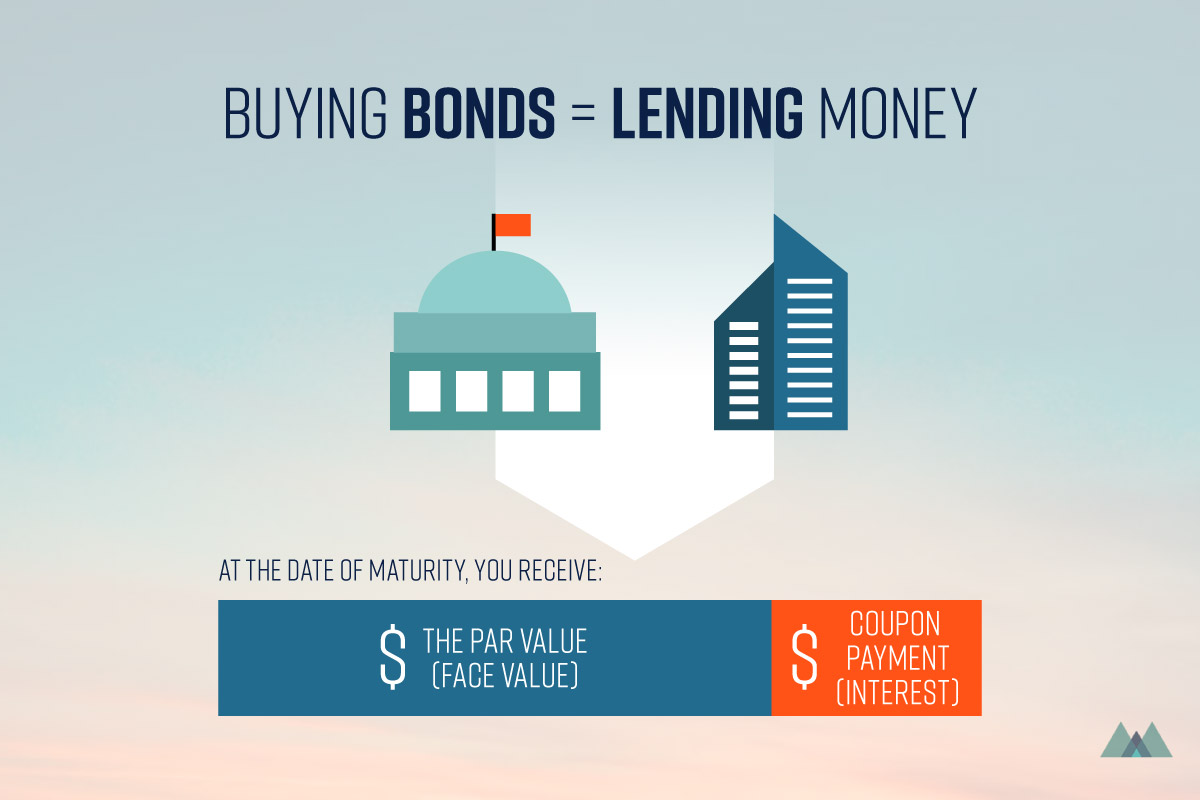
What Is a Bond?
Buying bonds from a corporation or the government is to lend money to them. In return, they will give you interest on your loan, known as the coupon payment. The deadline by which the corporation has to pay back the loan is called date of maturity.
For a bond trade at face value (par value) at $1,000 with a coupon rate of 3% annually and a date of maturity in 3 years, your total return will be $1000 * 3% * 3 years = $90.
- The par value (face value) = the amount of money a holder will get back once a bond matures
- Price of a bond constantly change. When the a bond is traded below the par value, it is sold at “discount” (the opposite is “premium”).
- Coupon rate = annual coupon payment / the par value
Why Invest in Bonds?
Bonds are less risky than stock and earn more interest than short-term lending. The return you earn from a bond is not affected by the growth of the company. That is, you will still receive the guaranteed interest whether the corporation does or does not earn a profit by the date of maturity unless the company is bankrupt.
Bond Prices & Interest Rates
Bond prices have an inverse relationship with the interest rate.
When the interest rate is higher, the return you can get from your ‘risk-free’ bank account (e.g. savings account) is higher. In this case, more investors are willing to leave more of their money in their ‘risk-free’ bank account as opposed to a ‘riskier’ bond. When this happens, bond prices will fall because the demand for bonds is lower.
Coupon Rates & Interest Rates
A bond's coupon rate is related to the current prevailing interest rates and the perceived risk of the issuer since a bond is essentially a loan. Newly issued bonds tend to have coupon rates that match or exceed the current national interest rate. Once a bond is issued and the coupon rate is set, the coupon rate for that bond will never change.
How to Purchase Bonds?
The easiest way is to buy diversified products such as mutual funds and ETFs that contain a variety of bonds. Companies sometimes issue more specific bonds to raise money.

Time's up
